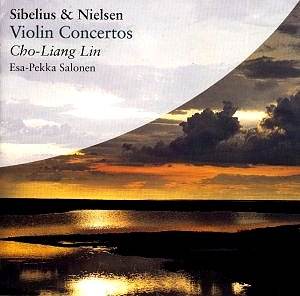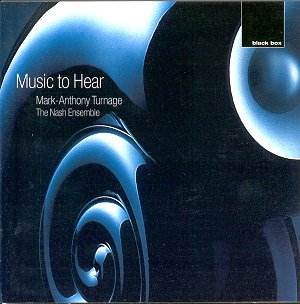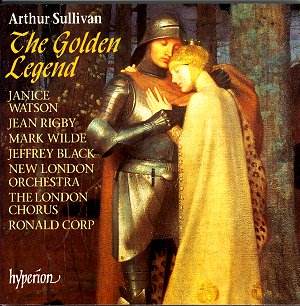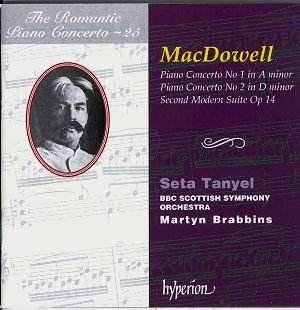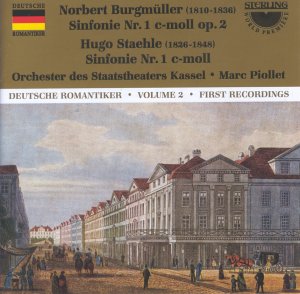 Composer: Norbert Burgmüller
Composer: Norbert Burgmüller
Works: Symphony No. 1 in c minor Op. 2 (1833), Symphony No. 1 in c minor (1844)
Performers: Orchester des Staatstheater Kassel, conducted by Marc Piollet
Recording: Recorded 29 Aug – 1 Sept 2001, Opernhaus Kassel, Germany
Label: Sterling CDS-1046-2
Norbert Burgmüller and Hugo Staehle, both tragically cut short in their twenties, offer a compelling glimpse into the Romantic symphonic landscape of the early 19th century. Burgmüller, whose Symphony No. 1 premiered in Düsseldorf in 1834, is often overshadowed by more prominent contemporaries yet displays a remarkable synthesis of lyricism reminiscent of Beethoven and the dramatic flair of Schubert. Staehle, a lesser-known figure in this period, commands attention with his own c minor Symphony, which reflects influences from Mendelssohn and Schumann, revealing a rich tapestry of Romantic expression.
Marc Piollet leads the Orchester des Staatstheater Kassel with a keen understanding of both works, navigating the intricate emotional landscapes with deft precision. Burgmüller’s symphonic language is characterized by its broad lyricism, and under Piollet’s baton, the orchestra breathes life into the sweeping melodic arcs of the first movement. Here, the strings effectively capture the melancholic undertones of Burgmüller’s experience of betrayal, while the woodwinds add a poignant color, particularly in their soft exchanges that echo the composer’s inner turmoil. The Scherzo is particularly invigorating, where the orchestra’s agility shines, showcasing a buoyant character that contrasts beautifully with the weightier elements of the outer movements.
In Staehle’s Symphony, the first movement unfolds with a Mendelssohnian grace, its themes intertwining with a clarity that reveals the orchestration’s textures. The Adagio cantabile stands out as a serene oasis, with lush harmonies that invite introspection. Piollet’s interpretation here is commendable; he encourages a fluidity in the phrasing that allows the melodic lines to sing, while the orchestra balances restraint with expressiveness, creating a space where the listener can truly appreciate the emotional depth. The Scherzo, laden with supernatural undertones, emerges as a highlight, revealing Staehle’s innovative orchestral effects that evoke Weber’s eerie charm in Der Freischütz.
Sound quality throughout this recording is exemplary; the engineering captures both the warmth of the strings and the crispness of the brass and woodwinds, allowing for an immersive listening experience. Sterling’s commitment to presenting these world premiere recordings deserves commendation, as it not only enriches the catalog of Romantic symphonies but also invites listeners to explore the lesser-known corners of this era.
The disc serves as a valuable contribution to the understanding of the Romantic symphonic repertoire, shedding light on two composers whose works have been largely overlooked. Piollet’s insightful direction and the orchestra’s spirited performance bring forth the nuances of both Burgmüller and Staehle, revealing their distinct voices within the broader symphonic tradition. This compelling recording not only honors their legacies but also encourages further exploration of their music, making a significant addition to the growing catalogue of German Romantic symphonies.
